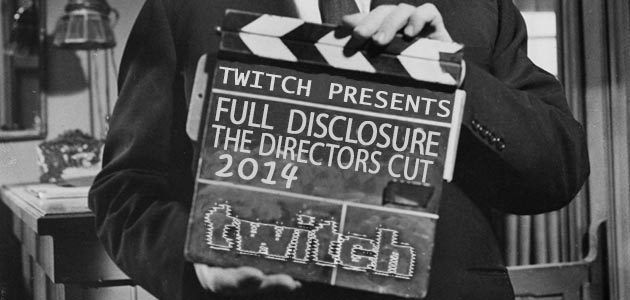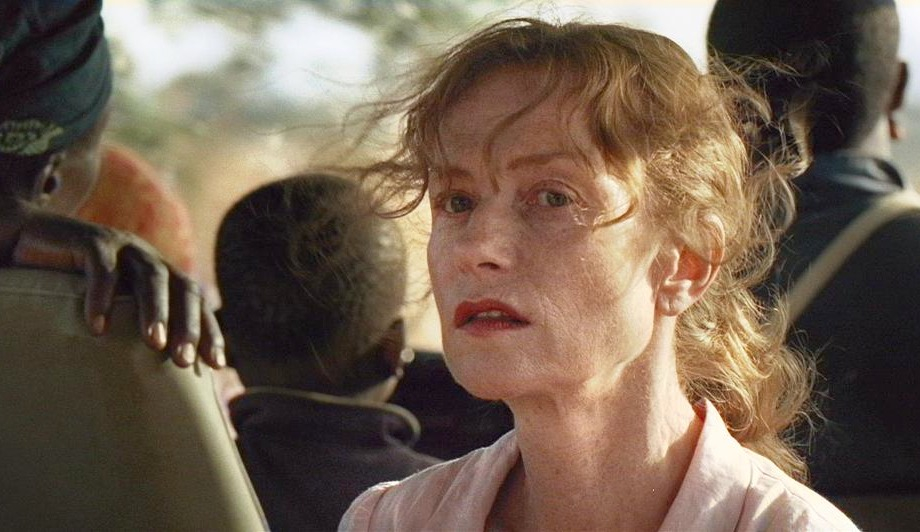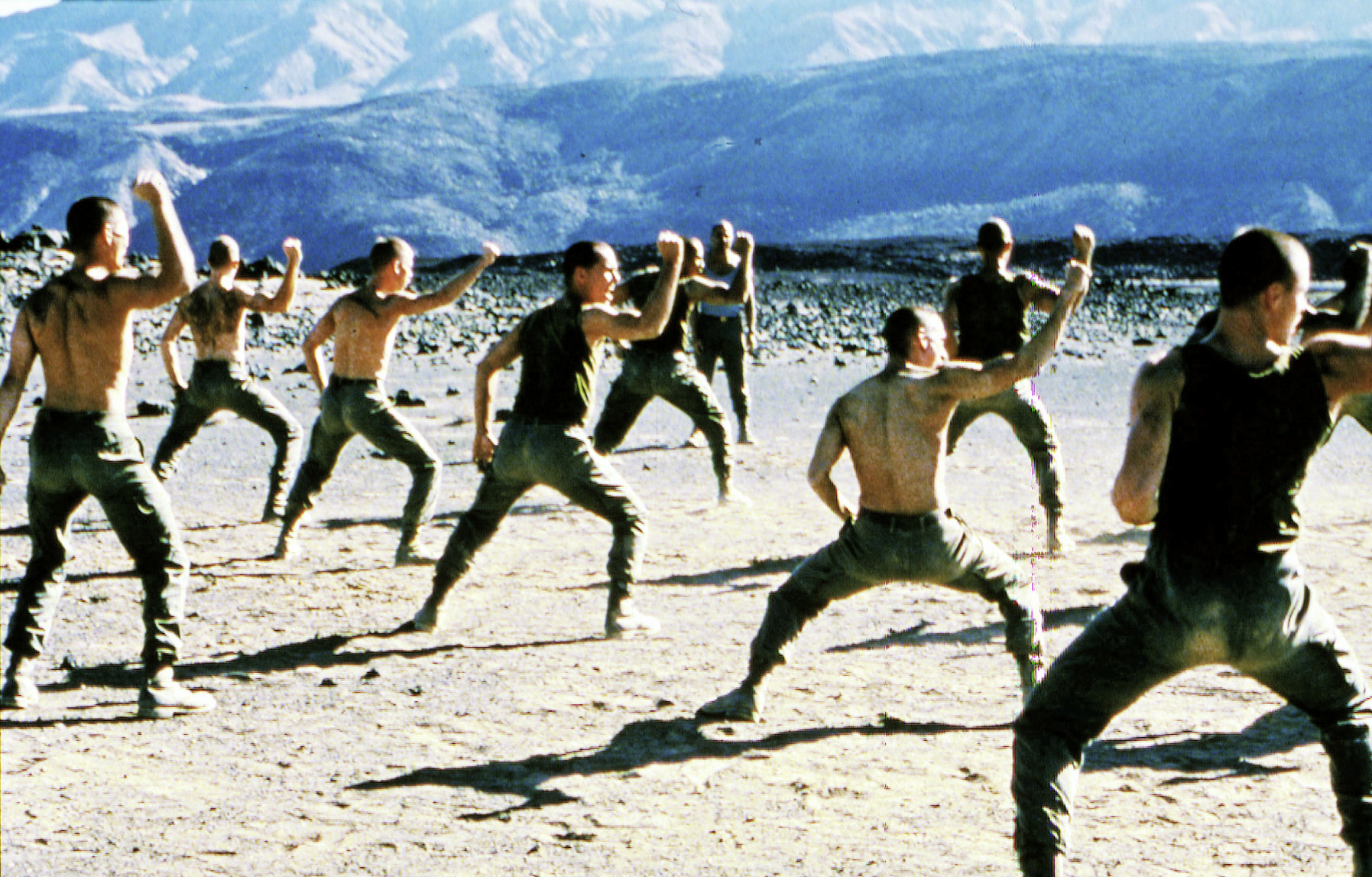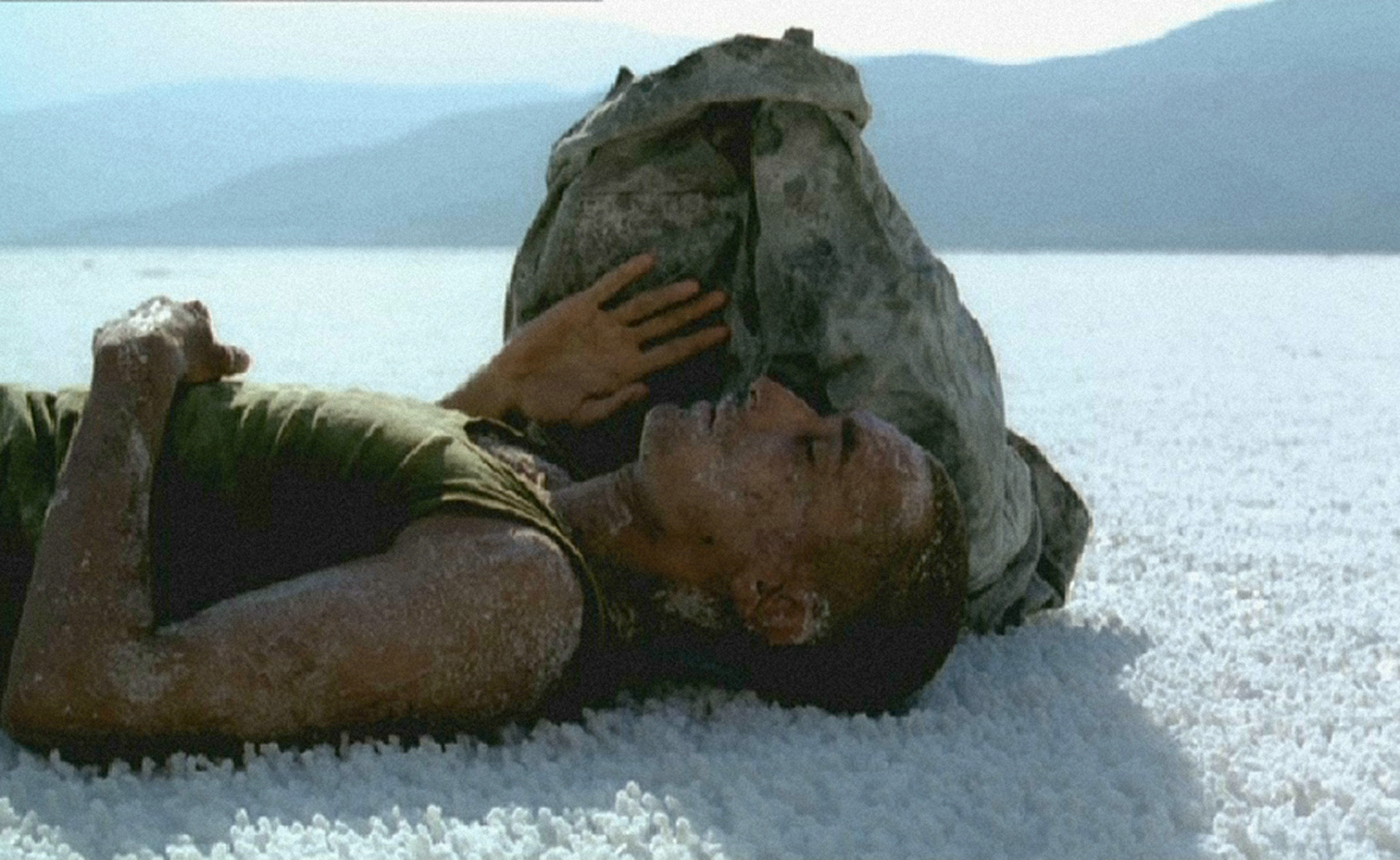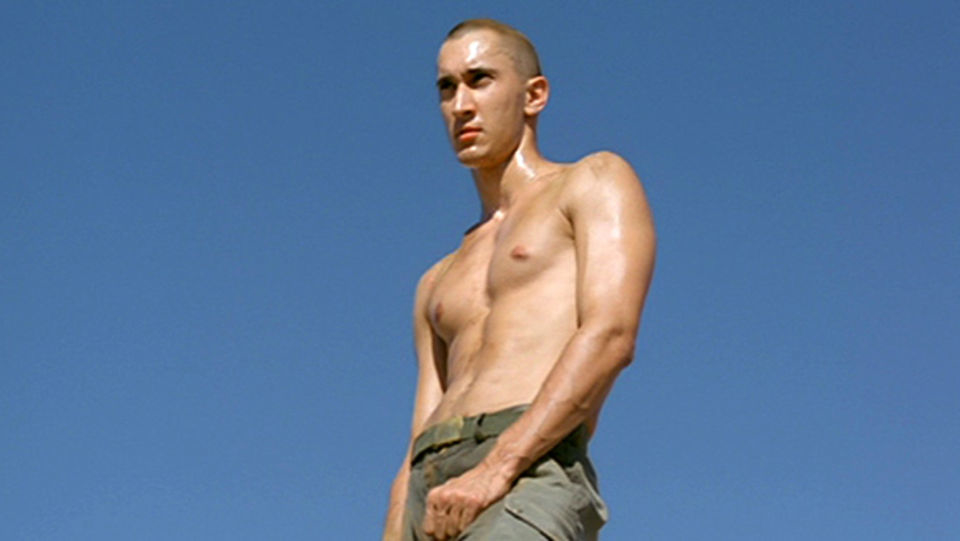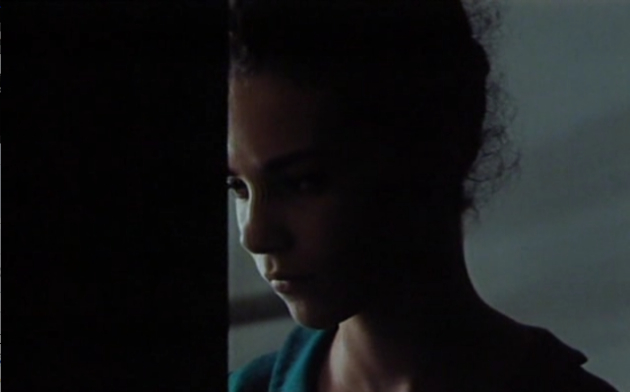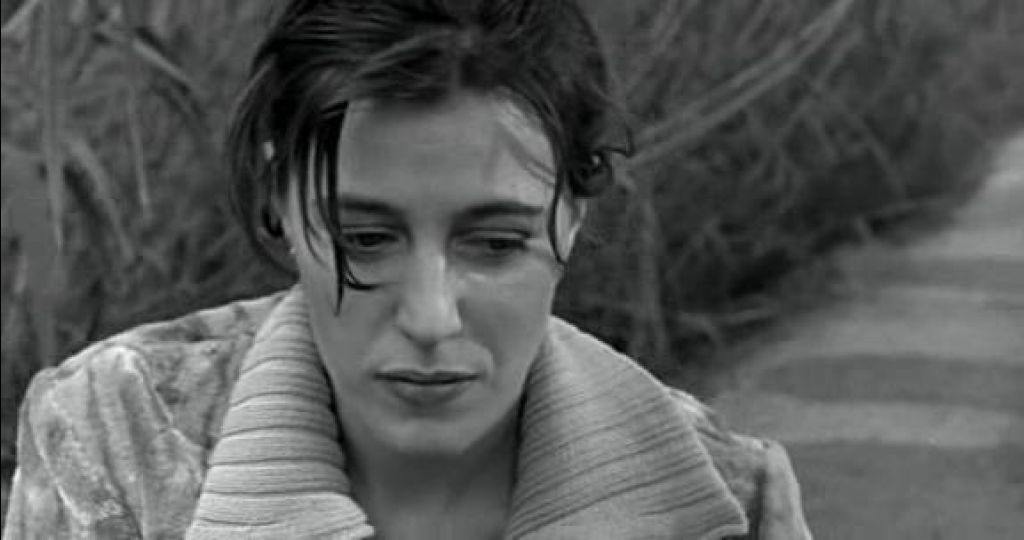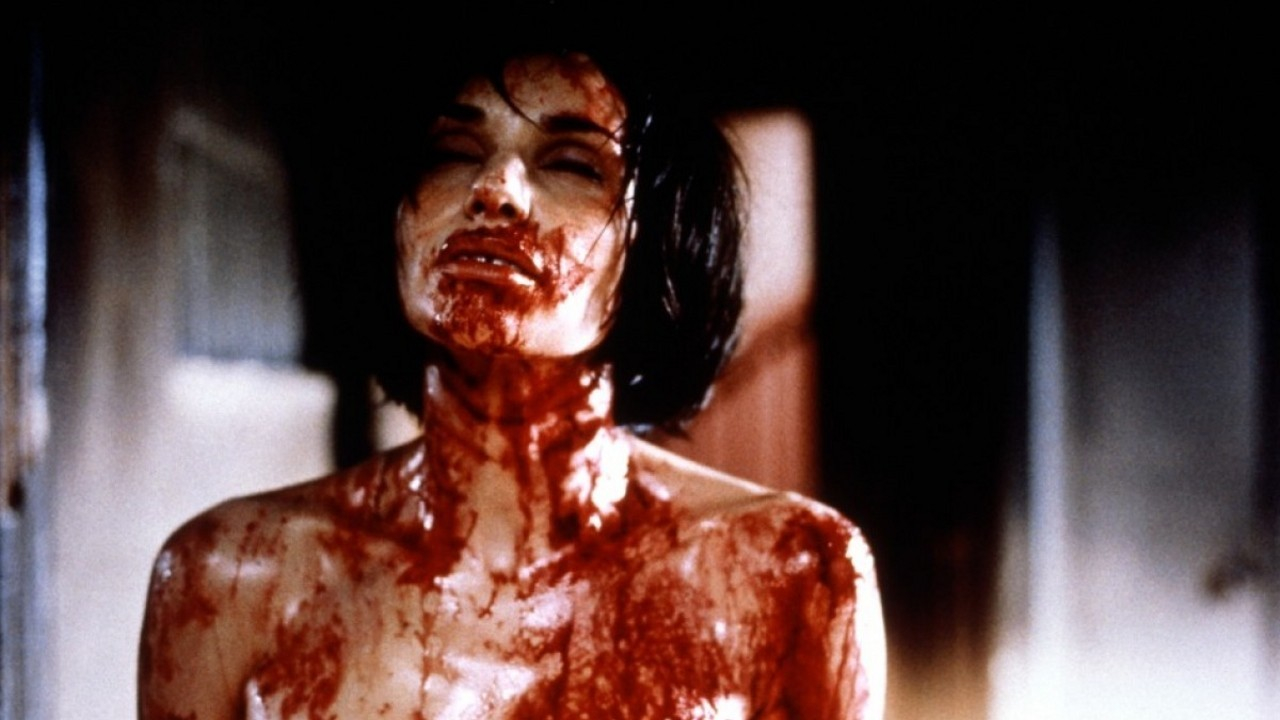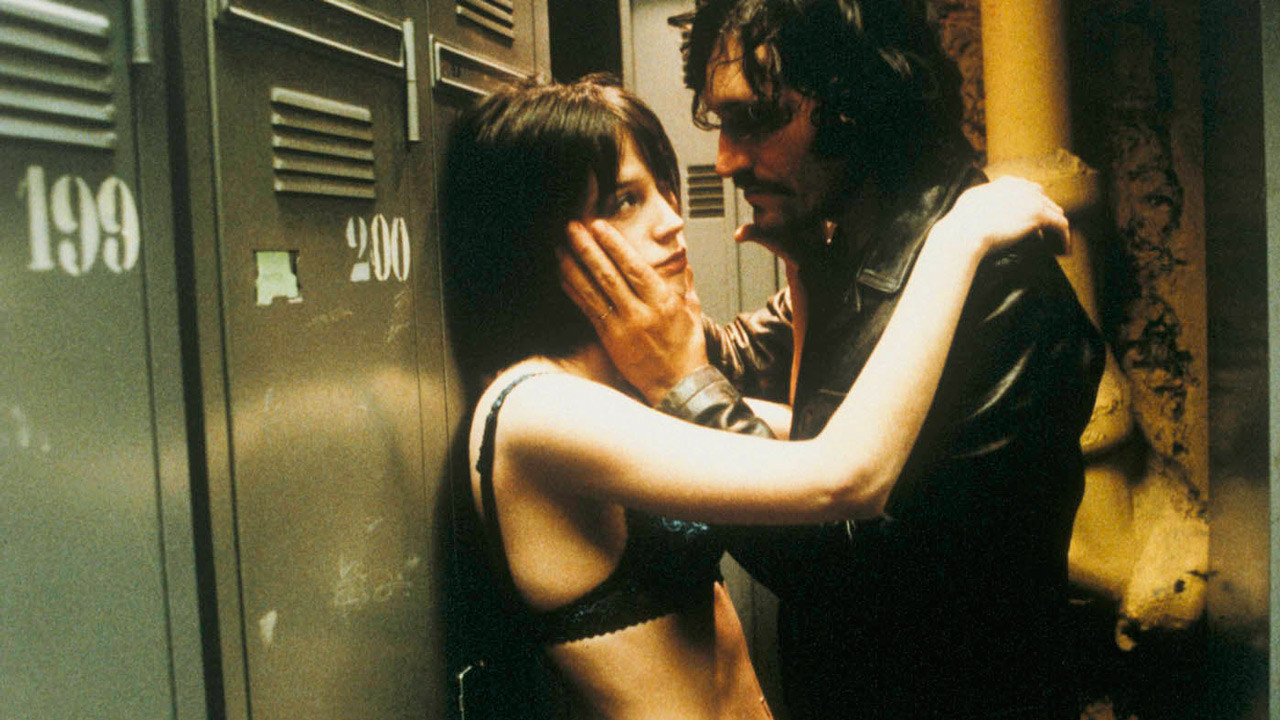Ard Vijn, Christopher O'Keeffe, Patryk Czekaj, Jaime Grijalba Gomez, Dustin Chang, Jim Tudor, Niels Matthijs, Kwenton Bellette and Shelagh Rowan-Legg
contributed to this story.











White Material (2009)
Ard Vijn - Contributing writer
Claire Denis was one of those filmmakers I had often read about, but not actually seen anything by. I remember Beau Travail being praised upon release, and the controversies surrounding Trouble Every Day, but these films were still on my to-do list, and stayed there. But in 2009, Claire Denis visited the International Film Festival Rotterdam to present 35 Shots of Rum. I ended up interviewing her, and as research for that I finally saw her most famous films.
So for this exercise, I had to take one of her newer films: White Material. And I am glad I did, as it contains everything I like about Claire Denis' other films: an interesting setting, an intelligent approach, surprising asides, stellar acting, and a soundtrack by The Tindersticks.
The story is about a very, VERY stubborn woman (played with chilling realism by Isabelle Huppert) somewhere in contemporary Africa, whose coffee farm becomes threatened when the front of a civil war moves in her direction. Rebels and Government armies get closer every day, and all French people are advised to leave the country. She refuses though, arrogantly claiming the region is safe enough to bring in one last harvest, even when literally everything and everybody around her proves this to be wrong.
That tragedy happens is certain from the start, as the film follows a non-chronological path, bits and pieces of mayhem and shocking violence become immediately visible. But how it fits together, and when you're watching what, is a deliberate part of the puzzle, and makes the straightforward story a lot more interesting.
All in all, this is once again a very good film by Claire Denis, and I highly recommend it.
Beau Travail (1999)
Christopher O'Keeffe - Contributing writer
This was my first time watching any of Claire Denis’ work and while it’s always exciting to dig into the films of someone regarded highly enough to warrant a Full Disclosure column, I had no idea what to expect.
Beau Travail stars Denis Lavant as former French Foreign Legion sergeant Galoup, who recalls his life in the legion up until an event that forced his dismissal. Life is simple, mundane menial tasks are combined with a tough regime of physical training, and free time is spent dancing with local girls in a gaudy nightclub. Galoup is something of a loner, separated from his men by his rank and intense attitude, he seeks the attention of his commander and takes an intense dislike to open and friendly new recruit, Sentain.
The sergeant’s recollections aren’t straightforward, there’s very little narration and dialogue between characters is sparse. From the offset the pace is lethargic, as details are slowly teased out of the story. The film is riveting because it’s never made clear what is going to happen, but with the seriousness of Galoup, the barren, desert environment and intense physical atmosphere, it’s clearly not going to be anything good. The lack of sound also plays a big part in creating a feeling of dread; on top of the wind and the waves in the desert the only music is the repetition of a single dissonant note.
Denis is in no rush to reveal exactly what happened and when she does it’s not as if it’s crystal clear, events and actions are all presented in such a way for them to lack credibility. This is very much one man’s account of a time and place, and as we can see, he’s a man who strains to be perfect, but clearly harbors pent-up emotion and rage.
The homoerotic overtones are palpable throughout, even before being rammed home with a rather brilliant final scene, but the lack of clear explanation and the hazy, dream-like approach to storytelling means the film is very much open to interpretation, and such an interesting work is more than worthy of discussion.
Beau Travail (1999)
Jaime Grijalba - Contributing writer
I can say that I watched this film, but I don't feel capable of saying much else.
I can say that I found it interesting, profound, beautiful (in an aesthetic way), and well performed.
I can say that certain scenes surprised me, while others turned me off, as if I was seeing certain elements hijacking the movie and taking it to other elements that distracted me from the main universe of the film, and while those elements were interesting in themselves (for example, any scene that didn't feature the legionnaires) they weren't really useful for the understanding of what the director wanted to say.
What I can't really say is that I understood what the director was saying, at least on my own. I could read online and in other parts that the movie is anti-war, that it has a homosexual undercurrent, that it is about colonialism, and I can see all of that... now.
I can't say that I loved this film because I didn't think that it connected with me as other movies on the same wavelength have (the Dardennes come to mind right now).
I can't say that I hated the film either, because the elements put on screen were never badly handled, they were always in some form of the expression "perfect".
I guess I could say that it didn't connect, but I'm not looking for an emotional connection, because I had some of that, I guess that the film is alien to me, just like Tarkovsky's Mirror is alien to me.
But I can say I prefer this to the Russian classic.
Beau Travail (1999)
Patryk Czekaj - Contributing writer
Following recommendations, I decided to start exploring Claire Denis’ filmography with Beau Travail, a befuddling yet undoubtedly unforgettable piece that’s not only a film, but also a stimulating visual poem. It’s a sumptuously filmed and smoothly edited picture that uses gorgeous opera music to demonstrate how a seemingly routine training sequence performed by a group of common soldiers might easily turn into a strangely mesmerizing dance.
Unleashed and more articulate than ever, Denis Lavant turns in a wonderful performance as the imperious and self-assertive French Foreign Legion’s master sergeant who can’t cope with the overbearing jealousy towards a younger, healthier, expertly trained soldier named Gilles Sentain. It’s a clash of two similarly powerful egos, reminiscent of the one so forcibly presented in Roman Polanski’s stunning debut Knife in the Water. Subtle homoerotic overtones only accentuate the already heightened tension between circumstantial rivals.
Although there are many distinct scenes that add to the film’s overall aesthetic appeal, the one that will probably stay with me forever is Lavant’s final chaotic dance, which marks a sudden and unwanted change in his character’s life, though the actions that led him to that point aren’t what one might call ethical. The sudden burst of energy that eventually conquers Lavant’s surprisingly lithe body reveals the frailty of his mind.
Denis ruminates on the strength and weakness of soldiers who find themselves in a warless society and in one way or another try to deal with the troubles of their daily grind. Guns are visible in almost every scene, but they’re pretty much useless. Hypothetically, when a critical situation arises, would the men, who spend time on meticulously choreographed exercises, be able to use real weapons? With Beau Travail Denis indeed sheds a unique light on war and its many controversial aspects.
US Go Home (1994)
Dustin Chang - Contributing writer
Since I am an avid fan of Claire Denis, there are only a few I haven't seen from her filmography. Vers Mathilde, her documentary on dancer Mathide Monnier, Jacques Rivette: Le Veilleur, another doc on one of the French New Wave great (Denis was Rivette's long-time assistant director), and US Go Home, her contribution to the French TV series, Tous les garçons et les filles leur age…. For Full Disclosure, I decided to go with US Go Home, which didn't get any kind of release in the US because of music rights issues. And I'm happy to tell you that it's awesome!
A couple of years before Nenette et Boni, Claire Denis made an hour-long film with the same principal cast (Grégoire Colin, Alice Houri and Vincent Gallo), commissioned by French TV. So naturally, US Go Home feels like a younger sibling to N & B - with Colin and Houri playing brother and sister in both. But the film is no less great. It's a pitch perfect movie about teens.
There were guides that Denis had to follow to meet the criteria of the series - the film has to take place during the time period of its director's childhood, has to be about youth and has to have a song that plays in its entirety. That third rule, for me, thank heavens, provides one of the best movie moments in history (perhaps second only to the last scene of another Denis film, Beau Travail)! It's teenage Gregoire Colin in his room dancing to Eric Burdon & the Animals' Hey Gyp.
So the setting of US Go Home is a suburb of Paris in the 60s. It starts with Alain (Colin) quoting the book he is reading, which warns that there is nothing honorable about men who surrender themselves to lust. Whether the passage is having any effect on him remains to be seen throughout the film. Martine (Houri) wants to get laid. She and her sultry Russian friend Marlene (Jessica Tharaud) want to go to a party at a house where the parents will be away. Martine's mom won't allow it though, unless her older brother Alain accompanies them. He begrudgingly agrees. The girls gussy themselves up like crazy. In the middle of the bus ride, the bickering siblings go their separate ways - girls to the party and Alain, as usual, to his rich friend's house where older kids mingle. Soon the girls find the party lame - parents are still there and everyone's doing samba. The girls then trek to Alain's hangout. There are people smoking, drinking punch and making out on the couch. Music also is rad! Alain ignores them. Pretty Marlene finds dance partners easily, and starts eyeing Alain. It's a little more difficult to find a guy for Martine with her baby face and dark kinky curls.
Teen years are confusing, humiliating, scary times. Desire overwhelms everything. Expectations are never met with satisfaction. After a disappointing night, the siblings meet American sailor, Captain Brown (Gallo), on the road. He wants to give them a ride home and share his last remaining coca cola. Alain, despite his fondness for American rock n' roll, refuses the offer, saying that he is a communist. It's a comment Captain Brown laughs off. Just like Martine's hollow 'US must go home!' chant, it's something he picked up saying without conviction. Gallo is perfect with his 'I haven't slept in 36 hours' look and asshole nonchalance as a man who is not sad but always miserable. He and Martine bond.
Denis and co-writer Anne Wiazemsky (the girl from Au Husard Balthazar and one-time wife of Godard) know how to capture all the angst and disappointment and loneliness of teenage years. US Go Home is a tender, thoughtful, emotionally resonant film that happens to be one of Denis' very best.
35 Shots of Rum (2008)
Jim Tudor - Contributing writer
I, like many other professing cinema experts, had somehow never seen a single film by French director Claire Denis. I knew of her work, of her reputation for facing difficult content head on, of the acclaim surrounding much of her filmography. But where to start? With her most acclaimed film, Beau Travail? Or at the beginning, with her 1988 eye-opener, Chocolat? As it turns out, the ideal order is her 2008 entry, 35 Shots of Rum.
At a glance, 35 Shots of Rum is a modest tale: A tight relationship between an everyman father and his grown daughter is challenged when a young man catches her eye. But within the first minute, before we've even met these people, it's apparent that we're in the hands of an excellent, intuitive filmmaker with an intensely acute sense of place.
In this case, it's the rundown, power line-addled edge of Paris - home of many such cultural minorities, immigrants, and vagabonds. There's a subtlety that reels you in: The potency of the musical score, the drab yet somehow alive visuals, all depicted from the point of view of a train. The train is driven by Lionel (Alex Descas) the well-meaning father who only wants what's best for his daughter. Around and around he goes, always driving the train, but never transcending the confines of his world. In the day-to-day family interactions, Denis shines through with a brilliant sense of common humanity as well.
On the whole, 35 Shots of Rum is positively intoxicating. It may not be among the heavier side of Denis' oeuvre, a la White Material or Trouble Every Day, but in its own way, it still delivers one heck of a cinematic kick for starters. I very much look forward to more.
Ten Minutes Older: The Cello (2002)
Niels Matthijs - Contributing writer
Denis was the first assignment where I was able to choose between regular feature films. Before last week I'd seen only two of her films. Trouble Every Day was truly amazing, Beau Travail was a pretty big disappointment and made me wonder if Trouble Every Day wasn't just a lucky shot. Looking at her other films, I didn't immediately find something to my liking, so again I dug a little deeper.
Ten Minutes Older is an anthology project split in two parts. A couple of weeks ago I watched part one, as it turns out Denis had an entry in the second part, titled Ten Minutes Older: The Cello. The anthology is a pretty prestigious project with directors like Jean-Luc Godard, Werner Herzog, Chen Kaige and Bernardo Bertolucci drawing in the crowds. All big arthouse names, not exactly my kind of directors but still an interesting bunch that should be able to come up with something interesting. The first part of the anthology was pretty hit and miss, but some stand-out shorts made me look forward to this second part.
This second part though was mostly miss. Apart from Mike Figgis' entry, not one other short managed to intrigue me. What's even worse, Denis' entry was probably the worst. A pretty bland black and white recording of a political discussion that felt more like a personal statement than a cinematic experience. She could've just written a text and published it in an interested magazine instead. A good waste of the 10-minute slot reserved for her.
I'm a pretty big fan of anthologies. Many different views and visions usually combine to make for an exciting 90 minutes, but Ten Minutes Older: The Cello was a pretty big let down. On top of that, I'm not really inclined to seek out more of Denis' films after this.
Trouble Every Day (2001)
Kwenton Bellette - Contributing writer
A Claire Denis flop but a true film maudit nonetheless, Trouble Every Day is dead in the water before the comic sans font opening credits even hit. This initially intriguing but ultimately static and sterile quasi-vampire tale is lifeless in its take and pointless minimalism. Atmosphere is replaced by bland direction and not even the wonderful Tindersticks score is enough to save proceedings. It is a far-cry from the incredible experience of another Denis joint, White Material.
Denis is the master of the aural space, and both diegetic and non-diegetic sound are handled in a clever and striking manner. It is a shame then that the awful acting by Vincent Gallo and the disinterest of pretty much every other character
provokes such disdain.
The film follows two couples, Coré (the sultry Béatrice Dalle) and her husband doctor Léo (Alex Descas, a Denis staple and an incredible talent). Coré seems to have a vampirism-like disease and an animalistic, almost child-like mindset. He locks her up in their home but she escapes multiple times and proceeds to seduce and murder men in fields before feasting on them. The couple barely talk, but seem to understand their precarious position, with Léo as doomed savior.
The other couple are American newlyweds who have seemingly come to Paris for a honeymoon. Shane (Vincent Gallo) and June (Tricia Vessey) check into a beautiful hotel, but Shane is tormented and ill. It is not explained why and the initial mystery is fascinating. However, the languid way it sticks to this character and the eventual reveal of who he is, is handled in such a dour way it is hard to maintain interest by the film's mid-point.
Eventually these couples find their ground and inevitably meet. The plot, however, is not the point. It is a Denis film and the visuals and sound design should add up to an engaging and intriguing experience. Instead Trouble Every Day is a tired, hampered and gormlessly polarizing work, I regret not watching Beau Travail instead.
Trouble Every Day (2001)
Shelagh M. Rowan-Legg - Contributing writer
If I hadn't written my PhD on Spanish fantastic cinema, I would have written on Claire Denis. One of my favourite filmmakers, the French auteur's use of static camera, long shots and an almost cinema verite style appeal to me with her themes of love, sex, crime, and the often banal duties of everyday life are made fascinating under her watchful eye. Given my interest in horror iconography, it's odd that it took me so long to see her vampire film Trouble Every Day.
There were many things about the film that I loved. More than most vampire films, it captures the everyday process of living life in such a state, of being almost an amateur, or living this unhappy, tired existence where the need for blood feels like breathing against your will. One of the first scenes shows the French vampire Coré sleeping in blood; but there is nothing erotic or heat-inducing about it; instead, Denis' steady camera picks up on the coldness, how such hot blood dries and sticks and becomes a useless shield. Denis combines these moments with often Antonioni-like shots from high above, a scarf languidly dropping through the air, as if only the vampires can see the beautiful in such ordinary moments. All moments - sex, death - are drawn out to uncomfortable levels. I can see influences on Steve McQueen and Let the Right One In.
Sadly, the film is hindered by the completely lifeless performance of Vincent Gallo. How that man continues to work, I do not know. There is nothing interesting in his acting, nor intense in his exploration of his newly-discovered vampiric state; as much as I understand Denis' desire to show the everyday-ness of vampirism, Gallo drains (pun intended) all the interest out of this scenes. The film is very good, but Gallo's presence keeps it from the greatness of Denis' other work.

Around the Internet
Recent Posts
Now Playing: SCREAM 7 Not So Scary, GHOST ELEPHANTS Not a Myth
SCREAM 7 Review: Well, That Was Brutal
Leading Voices in Global Cinema
- Peter Martin, Dallas, Texas
- Managing Editor
- Andrew Mack, Toronto, Canada
- Editor, News
- Ard Vijn, Rotterdam, The Netherlands
- Editor, Europe
- Benjamin Umstead, Los Angeles, California
- Editor, U.S.
- J Hurtado, Dallas, Texas
- Editor, U.S.
- James Marsh, Hong Kong, China
- Editor, Asia
- Michele "Izzy" Galgana, New England
- Editor, U.S.
- Ryland Aldrich, Los Angeles, California
- Editor, Festivals
- Shelagh Rowan-Legg
- Editor, Canada


